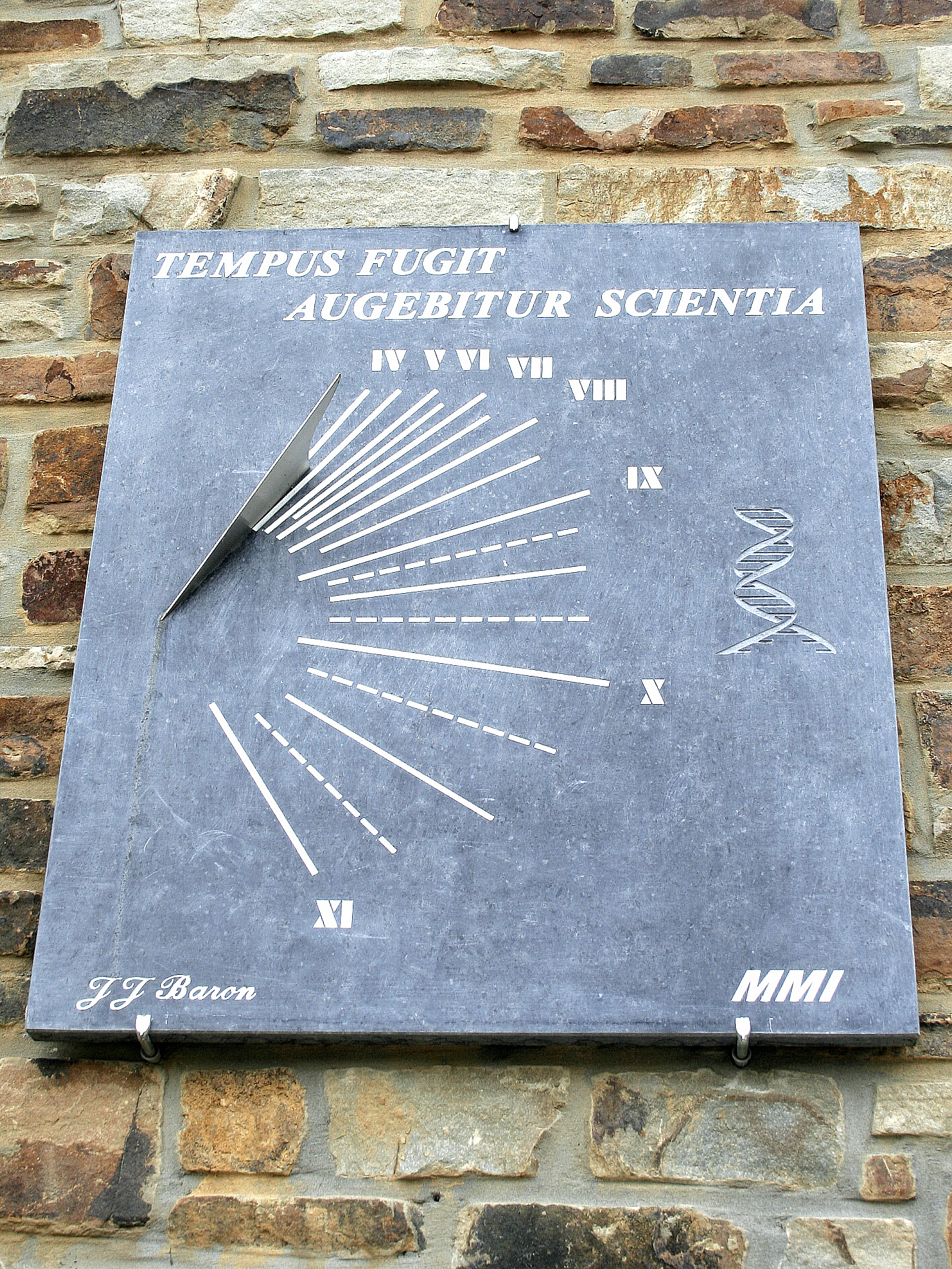Tempus fugit on:
[Wikipedia]
[Google]
[Amazon]
 ''Tempus fugit'' is a Latin phrase, usually translated into English as "time flies". The expression comes from line 284 of book 3 of
''Tempus fugit'' is a Latin phrase, usually translated into English as "time flies". The expression comes from line 284 of book 3 of
 ''Tempus fugit'' is typically employed as an admonition against sloth and procrastination (cf. ''
''Tempus fugit'' is typically employed as an admonition against sloth and procrastination (cf. ''
 ''Tempus fugit'' is a Latin phrase, usually translated into English as "time flies". The expression comes from line 284 of book 3 of
''Tempus fugit'' is a Latin phrase, usually translated into English as "time flies". The expression comes from line 284 of book 3 of Virgil
Publius Vergilius Maro (; traditional dates 15 October 7021 September 19 BC), usually called Virgil or Vergil ( ) in English, was an ancient Roman poet of the Augustan period. He composed three of the most famous poems in Latin literature: th ...
's ''Georgics
The ''Georgics'' ( ; ) is a poem by Latin poet Virgil, likely published in 29 BCE. As the name suggests (from the Greek word , ''geōrgika'', i.e. "agricultural (things)") the subject of the poem is agriculture; but far from being an example ...
'', Vergilius Maro, Publius. ''Georgicon'', III. c. 29 BC. Hosted at Wikisource
Wikisource is an online digital library of free-content textual sources on a wiki, operated by the Wikimedia Foundation. Wikisource is the name of the project as a whole and the name for each instance of that project (each instance usually re ...
. where it appears as ''fugit'' ''inreparabile'' ''tempus'': "it escapes, irretrievable time". The phrase is used in both its Latin and English forms as a proverb
A proverb (from la, proverbium) is a simple and insightful, traditional saying that expresses a perceived truth based on common sense or experience. Proverbs are often metaphorical and use formulaic language. A proverbial phrase or a proverbia ...
that "time's a-wasting".
Usage
 ''Tempus fugit'' is typically employed as an admonition against sloth and procrastination (cf. ''
''Tempus fugit'' is typically employed as an admonition against sloth and procrastination (cf. ''carpe diem
is a Latin aphorism, usually translated "seize the day", taken from book 1 of the Roman poet Horace's work ''Odes'' (23 BC).
Translation
is the second-person singular present active imperative of '' carpō'' "pick or pluck" used by Horace t ...
'') rather than an argument for licentiousness (cf. " gather ye rosebuds while ye may"); the English form is often merely descriptive: "time flies like the wind", "time flies when you're having fun".
The phrase is a common motto
A motto (derived from the Latin , 'mutter', by way of Italian , 'word' or 'sentence') is a sentence or phrase expressing a belief or purpose, or the general motivation or intention of an individual, family, social group, or organisation. M ...
, particularly on sundials and clocks. It also has been used on gravestones.
Some writers have attempted rebuttals:
Time goes, you say? Ah, no! alas, time stays, we go. by H(enry) Austin Dobson 1840–1921.
'Hêd Amser! / Meddi Na! / Erys Amser / Dyn Â' on sundial at Univ of Bangor, North Wales. says the sundial was commissioned by Sir William Henry Preece, and offers an English equivalent:
Time flies, thou sayest - Nay! Man flies; Time still doth stay.
Another English version is: Time Flies, Say Not So: Time Remains,'Tis Man Must Go.
In the ''Georgics''
The phrase's full appearance in Virgil's ''Georgics'' is:See also
*Time flies like an arrow; fruit flies like a banana
"Time flies like an arrow; fruit flies like a banana" is a humorous saying that is used in linguistics as an example of a garden path sentence or syntactic ambiguity, and in word play as an example of punning, double entendre, and antanaclasis.
...
* '' Ars longa, vita brevis''
* ''Carpe diem
is a Latin aphorism, usually translated "seize the day", taken from book 1 of the Roman poet Horace's work ''Odes'' (23 BC).
Translation
is the second-person singular present active imperative of '' carpō'' "pick or pluck" used by Horace t ...
''
* '' Got a Lot o' Livin' to Do!'', sung by Elvis Presley
Elvis Aaron Presley (January 8, 1935 – August 16, 1977), or simply Elvis, was an American singer and actor. Dubbed the " King of Rock and Roll", he is regarded as one of the most significant cultural figures of the 20th century. His ener ...
, in which "times a wasting" appears as a lyric.
* ''Memento mori
''Memento mori'' (Latin for 'remember that you ave todie'
References
External links
* {{Virgil Latin mottos Latin words and phrases Time management Virgil